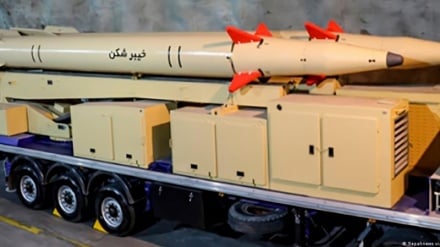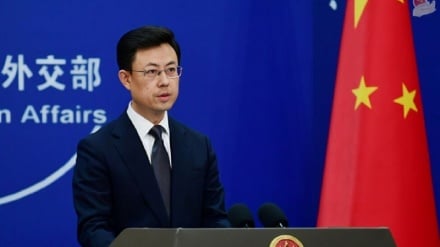Trump’s “emergency” sale to Saudi Arabia must not stand
Congressional opposition to U.S. support for the brutal Saudi/UAE war in Yemen has been growing in the past few years. It has underpinned the work of a network of peace, human rights, and humanitarian aid groups who are moved to end what the United Nations has described as the world’s worst humanitarian crisis.
The war has killed thousands of civilians through air strikes and put millions at risk of famine. William D. Hartung, the director of the Arms and Security Project at the Center for International Policy and the author of “Prophets of War: Lockheed Martin and the Making of the Military-Industrial Complex”, has more on this in an article titled “Trump’s “emergency” sale to Saudi Arabia must not stand.”
This spring, bipartisan majorities of both houses of Congress voted to end U.S. support for the Saudi/UAE-led coalition, only to see their action vetoed by the Trump administration, which has warmly embraced the Saudi regime despite its severe human rights abuses and violations of the laws of war. And in 2018, Sen. Robert Menendez (D-NJ), the ranking Democrat on the Senate Foreign Relations Committee, placed a hold on a sale of precision guided bombs to Riyadh because of its indiscriminate bombing of civilian targets in Yemen, including hospitals, weddings, funerals, a school bus, and water treatment plants.
Diplomats with knowledge of the issue have noted that these congressional actions have helped push Saudi Arabia and its allies to the peace table, so far with uncertain results. But it is an indication of the power of congressional involvement nonetheless.
This week, the Trump administration declared the moral equivalent of a war on Congress when it was revealed that it was planning to move forward on the sale of bombs to Saudi Arabia and the UAE under an emergency provision of the Arms Export Control Act that would prevent the opportunity for a congressional vote of disapproval on the deal. But as Sen. Chris Murphy (D-CT), a longtime opponent of the U.S. sale of arms to Saudi Arabia for use in the Yemen war, has noted, “there is no new emergency reason to sell bombs to Saudi Arabia to drop in Yemen…The Saudis have been dropping bombs on civilians, so if there is an emergency, it’s a humanitarian emergency caused by the bombs we sell the Saudis.”
US Secretary of State Mike Pompeo has asserted that the emergency declaration is a response to what the administration claims is a heightened threat from Iran. But members of Congress briefed on the alleged Iranian threat have accused the administration of manipulating intelligence to provoke a military confrontation, in an echo of what the Bush administration did in the run-up to its disastrous invasion of Iraq. Pompeo officially announced his intention to invoke the AECA provision to cover “22 pending arms transfers to Jordan, the United Arab Emirates, and Saudi Arabia totaling approximately $8.1 billion to deter Iranian aggression and build partner self-defense capacity.” All are nothing but pre-fabricated and unfounded allegations.
Furthermore, while Yemen’s Ansarullah movement and the revolutionaries fighting the Saudi/UAE’s unprovoked aggressions against the impoverished nation receive ‘moral’ support from Iran, they have decided on their own as ever before in defense of national sovereignty and territorial integrity. They have been fighting on and off for decades based on their own political and economic grievances. In short, selling weapons that will foster further slaughter in Yemen to counter Iran is both unjustified and immoral. And as Sen. Murphy has pointed out, if Trump is allowed to use a false emergency over Iran to circumvent Congress, “Congress will never be able to object to an arms sale again.”
The emergency declaration is of a piece with the Trump administration’s uncritical embrace of the Saudi regime and its reckless leader, Crown Prince Mohammed bin Salman. Trump’s first foreign visit as president was to Saudi Arabia, and he used the occasion to trumpet the “jobs, jobs, jobs” that he claimed would be generated by his alleged $110 billion arms deal with the kingdom. Never mind that U.S. sales to Saudi Arabia in Trump’s first year in office were only one-tenth that amount, or that the jobs created by Saudi sales are in the tens of thousands at most, not the hundreds of thousands claimed by the president. But why let the facts get in the way of a good story, particularly one that lets Trump posture as a master dealmaker committed to the needs of working Americans?
The problem with Trump’s arms sales policy towards Saudi Arabia isn’t how much he’s been selling, but the nature of the deals. Early in his term he reversed an Obama administration suspension of a deal for precision-guided bombs to Saudi Arabia, and now he is trying to push through another sale by undermining the right of Congress to scrutinize such sales.
Sen. Menendez has pledged to use “legislative and other means to nullify these and any planned ongoing sales.” Sen. Marco Rubio (R-FL) has called the emergency maneuver “a big mistake,” and Sen. Lindsey Graham (R-SC) has said he would “not do business with Saudi Arabia until we have a better reckoning” of the role of Saudi Crown Prince Mohammed bin Salman in the murder of journalist Jamal Khashoggi. Congressional opponents are mulling the best way to block the deal, and time is of the essence.
One option would be to push legislation to block the transfer, sale, or authorization for license of bombs and other offensive weapons to the Saudi regime. Crucially, such a measure would stop bomb sales already in the pipeline. The time to act is now.
According to the head of the UN Children’s Fund (UNICEF), the time is now for the international community to take action to end four years of fighting which has left at least 7,300 children killed or seriously injured. Henrietta Fore says, “These are verified numbers. Fifteen million children are asking for help. Imagine the pain endured by the families of the children who never made it home. In any conflict, children suffer first.”
This is while despite the fragile peace process around 360,000 children suffer severe acute malnutrition, and half of them under-five – or 2.5 million – have stunted growth, an irreversible condition. More than two million are out of school. In short, the UN says the systems that every child and family needs are failing. Also, too many children are dying as a result of explosive weapons and Saudi airstrikes. The devastating toll that the armed conflict has had on children psychologically and physically should provide enough urge among the international community to further resources and political commitment to protect them. And protecting them would only come if the US-backed, Saudi-led war on Yemen is immediately brought to an end.
International law makes clear that everyone has a responsibility to make sure children are protected in this protracted war. Yet the war, the blockade and explosive weapons continue to kill, maim and terrorize millions of children. To make things worse, the Saudis and their allies are not doing anything to stop their airstrikes and abide by this important moral principle to protect children.
The UN in numerous reports has called on the Saudi-led coalition to adhere to the humanitarian laws and norms and human rights provisions that are there to protect Yemeni children. Some Western governments which support Saudi Arabia militarily and with weapons have also been underestimating the harm done to children by their logistical support for airstrikes and bombings in densely populated urban areas. And attacks that cause disproportionate civilian harm are illegal under international law.
In fact, children are seven times more likely to die from blast injuries than adults involved in the fighting. The same is happening in Afghanistan. In that war-torn country, explosive weapons are also the cause of death in 84 percent of child conflict fatalities compared to 56 percent of civilian adult deaths. In the besieged city of Gaza, all reported child fatalities by Israeli airstrikes and shelling are the result of explosive weapons as well.
Just earlier, Saudi-led coalition airstrikes in Yemen’s capital Sana’a killed several children. Children are also 50 percent more likely to be victims of a blast injury after airstrikes are over as they are finally able to go outside and play again. Not only do such experiences leave an emotional scar, but also injured children are more likely than adults to suffer more complex internal damage.
Without ending the protracted war and in the absence of necessary care, these children will live with life-lasting consequences. The sad reality is most medics and international aid agencies just haven’t been able to get to the blockaded regions to treat children injured by airstrikes, and even when they reach there, there are no hospitals and medical facilities to house them as they have all been bombed by Saudi warplanes.
For years we have seen children dying in Yemen in airstrikes or from hunger, malnutrition and disease. The tragedy is these deaths could have been prevented with basic medical treatment and facilities.
It highlights the need for the UN to ensure Saudi Arabia and its allies adhere to international law and standards, including the suspension of airstrikes and arms sales, hold perpetrators to account, and provide children with necessary, practical assistance. Ending the conflict is a practical step that will save countless lives.
The bottom line is that the Saudis and their allies need to stop treating Yemeni children as though they are adults in miniature. Evidence on airstrikes and blast injuries shows children are the main victims of this unjustified war. This should be reflected in how the US-backed, Saudi-led airstrikes and bombings could be stopped - and how UN agencies responsible for investigating their war crimes could review the evidence in the international court of law.
EA/ME


